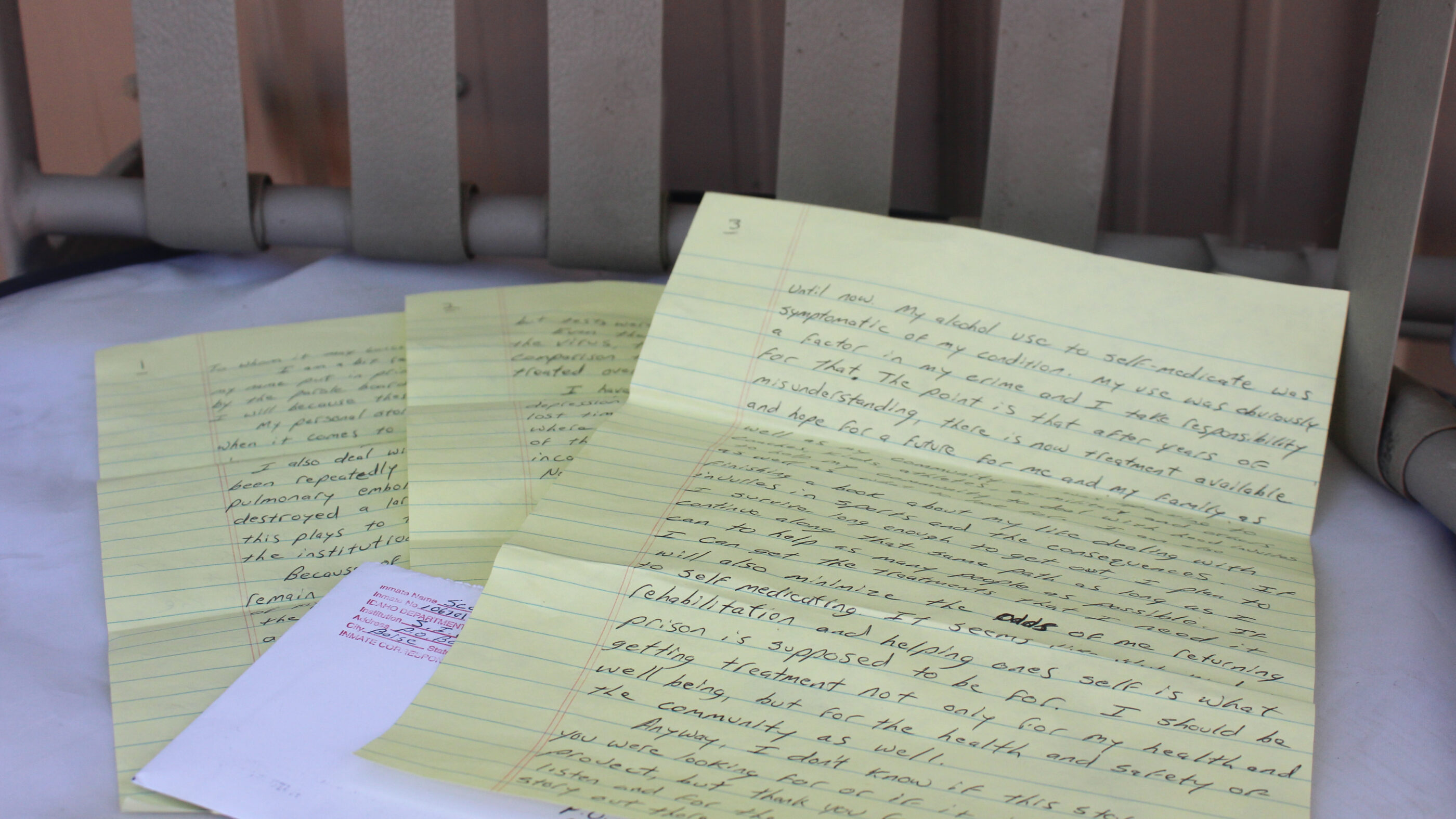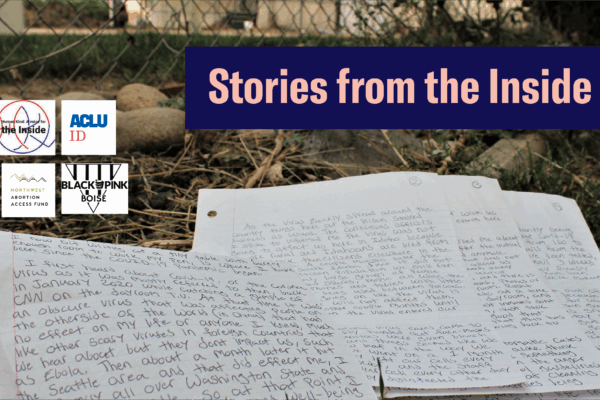June 7, 2020
To whom it may concern,
I am a bit reluctant to write this and have my name put in print because of possible retaliation by the parole board or IDOC themselves. But, I will because these things need to be told.
My personal story has multiple issues to discuss when it comes to not only the Covid-19 pandemic, but also my struggles to get medical attention that I need due to repeated traumatic brain injuries (T.B.I) that I sustained while playing football in the semi-pro and arena football leagues.
I also deal with another health problem that has been repeatedly mishandled. I have had multiple pulmonary embolisms (blood clots in the lungs) that destroyed a large part of my lung tissue. Obviously, this plays to the handling of the Coronavirus here in the institution as well since it attacks the lungs. Because of the blood clots, I am supposed to remain on the blood thinner warfarin for the rest of my life. Because of the lost long tissue and the clots, I am more at risk of serious pneumonia and have to be extremely careful when it comes to anything that deals with the lungs. So, when the pandemic began, I immediately brought my concerns to the attention of the medical staff. I was told that ‘it’s a completely different issue’ and was dismissed. This was after they had mistakenly taken me off of my blood thinners for two weeks and fought me about restarting them. I am never to miss a dose, none the less two straight weeks.
Within two months of Covid-19 coming onto the scene in the facility, the staff moved me from my living area so that they could bring ‘at risk’ individuals to that area of ‘quarantine.’ These people were still allowed to go to classes with the rest of us, so I’m not sure what they mean by quarantine.
I got moved to an area that housed us in 7’x7’ cubicles with four of us in each cubicle. We were not provided any masks for another 4-6 weeks. They gave us one in late April and another in mid-May or so. That was it for precautions. Imagine 80-90 inmates in a unit that is roughly 40’x50’ with four people in every 7’x7’ living area. There was not room enough for more than one person to get out of their bunk at a time. So the guys on the top bunks were basically sleeping in the same bunk. So much for social distancing.
Very rarely did you see a medical or security staff wearing a mask and the inmates were housed so close together that it didn’t matter anyway. There were many of us experiencing dry cough, breathing issues, etc, that asked for testing, but tests were not made available to us. Ever.
Even though I became ill and worried about the virus, the pandemic has been minor in comparison to the way that I have been treated over my head injury related issues. I have experienced well over twenty documented concussions in my lifetime.
Don’t get me wrong, I committed a crime, and I understand that there are consequences. That being said, I should still have the right to treatment for my condition. The punishment is incarceration, it should not be mistreatment and possibly ending or shortening of my life.
If anyone has seen the Will Smith movie “Concussion,” then they have a basic understanding of my condition. If not, then according to multiple neurologists, it is believed that I have a condition known as Chronic Traumatic Encephalopathy (CTE). The problem with this diagnosis is that it cannot be officially diagnosed at this point without a post-mortem autopsy. After, I die they can cut my brain open and make sure that the diagnosis is accurate. So, even though I am showing many of the symptoms and they are rapidly progressing, the medical staff here writes them off as migraines and gives me Tylenol and blood pressure medication to help with the headache symptoms. I have tried for 18 months to address this with them and exhaust all of the formalities from a prison process so that the ACLU can get involved, but they (medical) will not let me.
I just turned 50 years old. If my neurologists are right, I do not have much time left before I lose my cognitive abilities or my life. I sought treatment for so many years, but there was very little knowledge about my condition until recently. If I survive long enough to get out, I plan to continue along the same path as long as I can [of speaking to my community, coaches, kids, athletes, ex-military on how to deal with head injuries as well as what to look for] to help as many people as possible.
Anyway, I don’t know if this story is what you were looking for or if it is worthy of your project, but thank you for taking the time to listen and for the opportunity to get some of my story out there.
Sincerely,
Scott, South Idaho Correctional Institution
About the Stories from the Inside story project:
ACLU of Idaho, Black and Pink Boise, and HumanKind have collaboratively reached out to people who are currently incarcerated to share their view of the COVID-19 from inside Idaho jails and prisons. The experiences detailed in the submitted letters and responses are reflective of a prison system that lacks any standard of medical care for inmates and IDOC staff in the face of a global pandemic—even as the number of infected continues to rise. With the authors’ permission, we are publishing these letters here so their stories from the inside can be known.
Prisoners are people — and these are the real experiences they are having on a daily basis. All stories have been shared with written consent.
Black and Pink: Boise is an open family of queer & trans prisoners and "free world" allies who support each other.
Humankind: A Voice from the Inside is an organization committed to providing a voice for those navigating through the criminal justice system. We believe that everyone deserves fair and compassionate support in and outside of incarceration. Humankind envisions a world where individuals involved in the system are treated justly and receive adequate rehabilitation to become productive members of society. We need change, not chains.
The Northwest Abortion Access Fund is an abortion fund serving Washington, Oregon, Idaho, and Alaska. Trained, compassionate volunteer advocates run our toll-free hotline. We help people pay for their abortion care by sending funding directly to the clinic. We also help people get to and from the clinic and make sure people traveling for care have a safe place to stay.
We are a 501(c)3 nonprofit and a member of the National Network of Abortion Funds (NNAF), a membership organization of over 70 funds across the United States.



